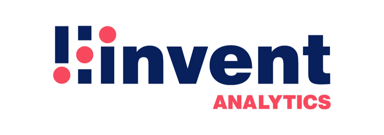
The 8 Best Crisis Management Certifications in 2026
Crisis is inevitable. What really makes the difference is how prepared its leaders are when it happens. For HR professionals, that means being ready to steady your people, communicate clearly, and protect trust when everything feels uncertain. ✨
In 2026, the right certification can equip you with frameworks, credibility, and confidence. Below we explore why crisis management certification matters, and walk you through eight leading options to help you choose wisely.
Best Crisis Management Certifications Shortlist 🤓
1. SECO Certified Crisis Management Officer (CCMO) - For senior leaders seeking a top-tier, globally recognized crisis leadership credential.
2. Certified Crisis Management Professional (CCMP) - Suits professionals managing organization-wide crisis planning and recovery.
3. Graduate / University Certificate in Crisis Management - Ideal for those who prefer academic depth and university credit.
4. PRSA Crisis Communication Certificate - Great for HR and PR experts handling messaging and reputation under pressure.
5. ICISF Critical Incident Stress / CISM Certification - Focuses on psychological support and employee well-being after crises.
6. Certificate in Organizational Crisis Management (AMU) - Practical choice for managers developing structured crisis plans.
7. Crisis Management & Business Resiliency (MIT Professional Education) - Blends leadership, resilience, and hands-on simulations.
8. Certificate in Emergency Crisis Response (AAETS / NCMC) - Emphasizes operational response and cross-team coordination.
Why a Crisis Management Certification Is Important
A strong certification delivers more than a badge. It ensures you learn structured methods, proven models, and best practices rooted in real case studies. That translates into better crisis readiness and response in your own organization. 📌
A certification changes how people see you. When your boss, your team, or even outside partners notice you’ve done the work to earn it, they tend to lean in a little more when you talk. In a crisis, that can mean your suggestions actually get heard.
It also keeps you sharp. Crises don’t look the same anymore with AI, social media, and misinformation constantly changing the game, most programs make you refresh your skills from time to time.
Bottom line: if you want to be the person who’s steady and trusted when everything’s blowing up, a solid crisis management certification is worth the time.
📌 Recent reports show a major gap in crisis preparedness. PwC finds 91% of organizations faced a major disruption in the past two years, yet many feel underprepared. FTI Consulting notes that over two-thirds don’t run crisis drills, and nearly 70% lack a cross-functional response team. These numbers highlight the value of certified crisis management expertise.
The 8 Best Crisis Management Certifications in 2026
1. SECO Certified Crisis Management Officer (CCMO)

Duration: Flexible, multi-level path ⏱️
Issued by: SECO-Institute 📜
The SECO-Institute offers a tiered certification path culminating in Certified Crisis Management Officer (S-CCMO).
This path starts with the Foundation level (S-CMF), moves to Practitioner (S-CMP), then Expert (S-CME), and finally toward the Officer (S-CCMO) designation.
To qualify for S-CCMO, candidates typically need to demonstrate expert-level knowledge (e.g. via SECO’s Expert level) and an extensive track record of crisis experience. Some sources mention 7 years of relevant experience, of which 5 should be in leadership roles.
The appeal for HR professionals is that SECO’s program covers the full lifecycle of crisis: detection, planning, internal coordination, external communication, and continuous improvement. Because it’s modular, you can grow through levels as you gain experience.
But, this one takes more time and money than most, and you’ll need to meet a few requirements before getting in. But if you’re serious about crisis leadership, the S-CCMO has a strong reputation: it’s tough, but people really respect it.
2. Certified Crisis Management Professional (CCMP)

Duration: 2–3 weeks (self-paced) ⏱️
Issued by: AIBMC 📜
The CCMP -Certified Crisis Management Professional - is for people who want to actually lead when things go wrong. Not just HR things, but the big picture. It’s from the American Institute for Business Management and Communication. You learn how to prevent crises, handle reputational hits, deal with legal issues, even navigate cultural differences.
Usually, you need a degree or similar experience and at least a year in a management role.
What’s good about it? It doesn’t just focus on communications. You learn about keeping the organization resilient, figuring out who matters in a crisis, and how to get the company back on track. If you want to have a real voice in company-wide crisis decisions, this one’s worth a look.
3. Graduate / University Certificate in Crisis Management

Duration: 6–12 months ⏱️
Issued by: Accredited universities (e.g., AMU, Georgetown) 📜
These days, a lot of universities offer crisis management or business continuity certificates, usually at the graduate level that mix real-world cases with hands-on learning. American Military University (AMU) is a solid option.
This program is about the real work of leading through chaos: keeping your people informed, your operations running, and your communication honest when things start to unravel.
The advantage of a university certificate is academic rigor and credibility. It often comes with formal credits and the possibility to stack toward a master’s degree. For HR pros who want deep theory, research exposure, or a resume that reads like a serious academic credential, this route is compelling.
However, these programs can be relatively inflexible in schedule, more expensive, and sometimes longer in duration. They may also emphasize theory over hands-on simulations depending on the institution.
4. PRSA Crisis Communication Certificate

Duration: 5–6 hours ⏱️
Issued by: PRSA 📜
The Public Relations Society of America (PRSA) has an on-demand Crisis Communication Certificate Program designed for people who handle communication and reputation when things go wrong. The course takes about 5–6 hours total.
Designed for mid to senior communication professionals, the program includes six modules: foundational principles, apology strategy, social media in a crisis, influencing senior leadership, operational readiness, and crisis planning.
The strength here is its focus: crisis communication is often the heartbeat of what HR must do during a crisis (messaging, transparency, stakeholder trust). For HR professionals who want to sharpen or validate their communication competence in crisis, PRSA’s certificate gives you a focused toolset.
One limitation: it is not as broad as other full crisis management credentials: it’s not primarily a structural, operational, or resilience credential. If your role already involves communications, this is a smart add-on.
5. ICISF Critical Incident Stress / CISM Certification

Duration: Varies by course track ⏱️
Issued by: ICISF 📜
ICISF is one of the go-to organizations for people who deal with crisis response or trauma support.
Their Critical Incident Stress Management certification (CCISM) is especially well known. It’s not something you can just sign up for right away. You start with a couple of intro courses, like Group Crisis Intervention or Assisting Individuals in Crisis, to build a solid foundation first.
The exam is open book and tests your knowledge base in CISM theory and practice.
This is less a “business resilience” credential and more about psychological crisis, trauma support, and post-incident care. For HR professionals, it is especially relevant if your organization heavily involves employee support, trauma recovery, EAP programs, or high-stress roles (first responders, healthcare, disaster relief).
If your interest lies in human well-being during and after crisis, ICISF’s credential gives legitimacy to your role in the psychosocial dimension of crises.
6. Certificate in Organizational Crisis Management (AMU)

Duration: 6 months ⏱️
Issued by: American Military University (AMU) 📜
This is the certificate program mentioned earlier at American Military University (AMU). It’s tailored for leaders dealing with organizational crises: not just external disasters but internal disruption, reputation risk, operational discontinuities.
The curriculum covers crisis communication, strategic planning, continuity, and leadership during shock events. You learn how to advise executive teams, design protocols, and manage overlapping crisis spheres (e.g. financial, reputational, HR).
Because it is university-based, the credential tends to carry weight in academic and professional circles. For an HR leader who wants a strong foundation with strategic depth, the AMU certificate is a remarkable option.
7. Crisis Management & Business Resiliency (MIT / Professional Ed)

Duration: 3 days ⏱️
Issued by: MIT Professional Education 📜
MIT Professional Education offers a program titled Crisis Management & Business Resiliency.
In this program, you get thrown into real situations: maybe a ransomware attack, maybe a few crises hitting at once, and see how you handle it under pressure. You also learn how to set things up so your systems can recover and adapt before trouble even starts. You’ll cover things like leadership, supply chains, cyber risks, communication, and planning ahead.
And of course, having MIT’s name attached definitely adds some weight, plus the simulations give you hands-on practice. For HR professionals who aspire to a strategic crisis/adversity planning role, this program offers both exposure to future thinking and actionable frameworks.
One tradeoff: such premium programs tend to have higher price tags and more rigid schedules.
8. Certificate in Emergency Crisis Response (AAETS / National Center for Crisis Management)

Duration: 2–4 weeks ⏱️
Issued by: AAETS / National Center for Crisis Management 📜
The AAETS -American Association for Emergency & Trauma Services- offers a Certificate in Emergency Crisis Response, through the National Center for Crisis Management. It’s pretty hands-on and tactical, focused on things like emergency management, logistics, incident command, and coordinating a response.
It’s not really built just for HR, but it helps a lot if you work with different teams. You get better at pulling people and resources together, making fast calls, and actually understanding what other departments like safety, facilities, or emergency teams are doing.
HR usually ends up in the middle of all that anyway. Things like evacuation plans, safety, or figuring out what to do when something big happens. If your company could ever face things like a health crisis, a natural disaster, or even an accident, this course helps you know how to talk about it and actually be useful when it counts.
How to Evaluate a Crisis Certification
Here are the criteria you should weigh, in the voice of an HR professional evaluating for yourself (or for your team). 👌
Breadth vs Depth
Some programs walk you through every stage of a crisis like spotting risks, managing the chaos, communicating, and rebuilding afterward. Others stick to one area, like communication or psychological support. Think about what fits you best: a broad understanding or one specific area?
Practical vs Theoretical
Real-world practice through simulations, case studies, or hands-on drills prepare you for the real thing. Purely theoretical credentials may give depth but less muscle memory. If your employer cares more about your real-world readiness, value programs with simulation components more heavily.
Reputation & Recognition
Will people in your field actually recognize this credential? Think about whether it’s known and respected where you work: whether that’s in HR, security, or operations. An internationally known brand like MIT or SECO might give greater credibility than a niche, unknown certificate.
Recertification / Continuing Education
Crisis is a moving target. Look for a certification that makes you refresh your skills or stay up to date. The ones that never require renewal tend to lose their value over time.
Cost, Time, and Access
High prestige often comes with a high price. Also consider how much time is required, scheduling flexibility, online vs in-person, and whether you can manage it alongside your HR duties. A beautifully rigorous program that you never complete is worse than a modest credential you actually finish.
Alignment with Your Role
Ask: “In my HR context, what crisis domains do I touch?” If your role intersects heavily with employee mental health, culture, reputation, communications, or emergency planning: choose a certification that emphasizes those areas. You don’t want expertise in tactical rescue if your daily challenges are reputational or stakeholder trust.
Community & Networking
Certifications that give you access to alumnus networks, peer groups, practitioner forums or research resources deliver ongoing value. The relationships you build can be as valuable as the credential itself.
Conclusion
Crisis management’s kind of a must now. Things change fast, and HR is usually right there when it all hits. So getting certified isn’t just a nice-to-have anymore, it’s smart.
You have a few ways to go. SECO’s program is super detailed if you want the full deep dive. PRSA’s one is great if you care more about communication. And MIT’s course is more hands-on, which some people really like.
It really depends on you. Think about what your job’s like, what you want next, and the kinds of problems you usually deal with. Check if the cost and timing are good, then implement. You’ll feel more sure of yourself, and people will notice it. ⭐️
Start Hiring With Our Free ATS!
HR teams from AXA, Mondelez, Mercedes… they love us! (no credit card required 🙂↔️)
Contents
Get a demo
- Quickly find top candidates with smart application management
- Improve team collaboration using built-in communication and workflows
- Offer a smooth candidate experience to strengthen your employer brand
- Count on 24/7 support for a hassle-free hiring process
- Quickly find top candidates with smart application management
- Improve team collaboration using built-in communication and workflows
- Offer a smooth candidate experience to strengthen your employer brand
- Count on 24/7 support for a hassle-free hiring process
"We truly felt the speed difference. Everything was smoother, and candidate feedback was much more positive. It made our jobs easier."

Trusted by 100+ teams
Get Informed,F.A.Q.
Revolutionize your hiring process with our transformative Applicant Tracking System (ATS.)
Suggested Blog Posts

How Much Time Does an ATS Save? ROI Guide 2026

Best ATS Systems for Irish Employers in 2026
















